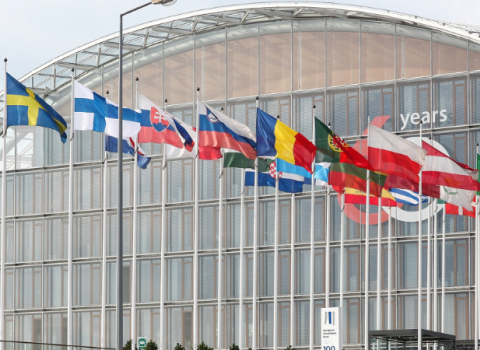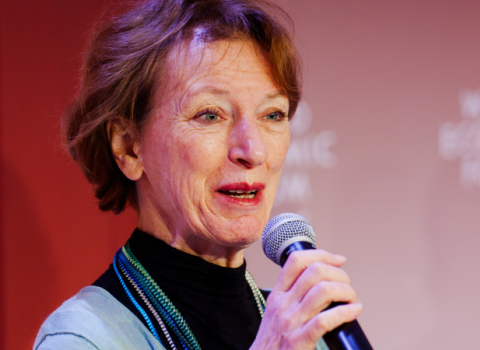This year is a milestone for the EU’s Widening measures, marking 10 years since they were first introduced under Horizon 2020. We dive into the data to paint a picture of progress made since then. We also look at the pressure Romania is coming under to merge universities in a bid to boost their standing in international rankings, at the formation of a digital innovation club by Germany and the Baltic states, and how the European Institute of Innovation and Technology's new hub in Kyiv hopes to help re-build the country’s start-up ecosystem.
Latest news
TEN YEARS OF WIDENING: The Widening measures were brought in nearly a decade ago to try to close the EU’s east-west research and innovation gap. The data shows there has been some improvement, with Widening countries increasingly involved in Horizon Europe. But the rest of the EU has not stood still and while Widening countries improve, the gap between them and the top performers stubbornly remains.
INNOVATION CLUB EYES DIGITAL OVERHAUL: Germany and the three Baltic states have joined forces in an ‘Innovation Club’ that aims to improve Europe’s digital infrastructure and better support innovation. First in its sights is the bloc’s slow digital transition, with the club calling for changes to the digital single market agenda. “The idea […] is to bring together the pioneering role of the Baltic states in the field of digitisation with the political weight of Germany,” a spokesman for the German federal government said. Thomas Brent has the story.
ROMANIAN UNIVERSITIES FACE PRESSURES TO MERGE: For the first time in 17 years, no Romanian university was ranked in the Shanghai university league table of 2023. One way to back into the rankings could be to merge institutions, a tactic that has been successful in boosting the standing of universities in France and the UK. This was part of the rationale when the Polytechnic University of Bucharest joined the University of Pitesti last year, in what was the country’s largest university merger since the fall of communism. But there is resistance in some quarters to adopting this strategy. Mădălina Cocea has the story.
ECOSYSTEM COLUMN: Russia’s invasion of Ukraine in 2022 decimated the country’s innovation scene, with many entrepreneurs and companies fleeing abroad. A lot of effort has gone into supporting these exiles, but now the attention of the EU is turning to helping those who stayed put. A new hub opened by the European Institute of Innovation and Technology in Kyiv is at the heart of this. Ian Mundell has the story.
In other news
POLISH REFORMS: Poland’s new prime minister Donald Tusk was sworn in back in December and has wasted no time in making a mark. One major shift for the research community will be the uncoupling of the Ministry of Education and Science to create two new ministries, the Ministry of National Education and the Ministry of Science and Higher Education.
The country’s new science minister, Dariusz Wieczorek, already has his plate full, starting with the embattled National Centre for Research and Development (NCBR), which is facing corruption allegations over irregularities in distributing grants. The NCBR will be taken under the control of the new Ministry of Science and Wieczorek confirmed an audit is to be conducted to investigate the extent of the issues affecting the organisation.
Elsewhere, Poland’s other main national research funder the National Science Centre (NCN) is to receive an increased budget, the country’s finance minister Andrzej Domański announced in December. The NCN has long been calling for more money, saying its unchanged budget over the past two years has left it unable to meet the needs of the research community.
WIDENING MUST MODERNISE: Leaders, not followers. That is the message of the Alliance4Life consortium made up of 12 leading life science institutions from central and eastern Europe in a new report that calls for a modern approach to Widening measures. The consortium says that it is about time Widening actions were designed to frame its grantees as leaders, instead of pitting them as the inexperienced partner learning from the excellent western European leader. “Current collaborative schemes in widening (except Excellence Hubs) use the concept of ‘leaders” based in non-widening countries transferring their knowledge and skills to the ‘followers’ from widening countries,” the report states. “The schemes thereby promote the self-identification of researchers in widening countries as ‘followers’, even though they formally are coordinators.”
REGIONS KEY TO CLOSING INNOVATION GAP: The EU should look to strengthen its regional R&I ecosystems, particularly in less innovative areas, to help increase the EU’s R&I efficiency, new conclusions adopted by the Council of the EU in December state. The conclusions were proposed by the Spanish Presidency and stress the importance of improving local innovative ecosystems and creating better synergies between Cohesion funds, Horizon Europe and the post-COVID recovery funds. They were welcomed by the European Committee of the Regions, with the chair of its SEDEC Commission Tanya Hristova saying that the conclusions represent a “promising starting point to shape future innovation policies, relying on the vital contribution of regional and local actors…”.
FIND A GREEN TECH PARTNER: The University of Ljubljana in Slovenia is hosting an international brokerage event to match potential research partners working on green technologies, energy, and digitalisation. The event takes place on 15 February and will be a chance to find consortium partners for upcoming Horizon Europe and other EU funding calls. Find out more here.
‘WE ARE HURT, BUT NOT BROKEN’: Finally, Science|Business would like to acknowledge the tragedy that took place at Charles University in Prague where 14 people were killed in a mass shooting on 21 December last year. Charles University the oldest university in Czechia and is a pillar of the country’s research and development community. It is a strong performer in winning EU funds, and was in the top 20 best performing Widening institutions under Horizon 2020. As the university’s rector, Milena Králíčková, stated: “We are hurt, but not broken. The academic community enters the new year with its head held high.”
Mark your calendars
TARTU, 24-26 January: This year is the eighth iteration of sTARTUp Day, a three-day business festival set in the Estonian smart city of Tartu. There will be a series of matchmaking events, seminars for entrepreneurs, a demo area for innovators to show off their products and more. In 2023, there were 150 speakers present, over 250 start-ups, 230 investors and over 3,200 attendees. More details here.
SOFIA, 22 FEBRUARY: The full-day Innovation Explorer conference in Bulgaria’s capital will welcome a raft of speakers including the country’s president Rosen Plevneliev, local business leaders, mayors, academics and trendsetters. The purpose is to set out and discuss how innovation can drive positive change in the country, with various panels addressing the country’s role in shaping the future world. Find out more here.
KRAKOW, 15 - 16 APRIL: The Cancer Drug Development Forum is hosting a multi-stakeholder workshop on clinical research in central and eastern Europe. It will focus on the fast-growing clinical trial market in the region and how the conflict in Ukraine is playing a role in shaping it. Find out more here.
The Widening newsletter is a roundup of news and analysis of research and innovation policy and investments in central and eastern Europe, delivered to your inbox twice a month. Sign up here.





 A unique international forum for public research organisations and companies to connect their external engagement with strategic interests around their R&D system.
A unique international forum for public research organisations and companies to connect their external engagement with strategic interests around their R&D system.